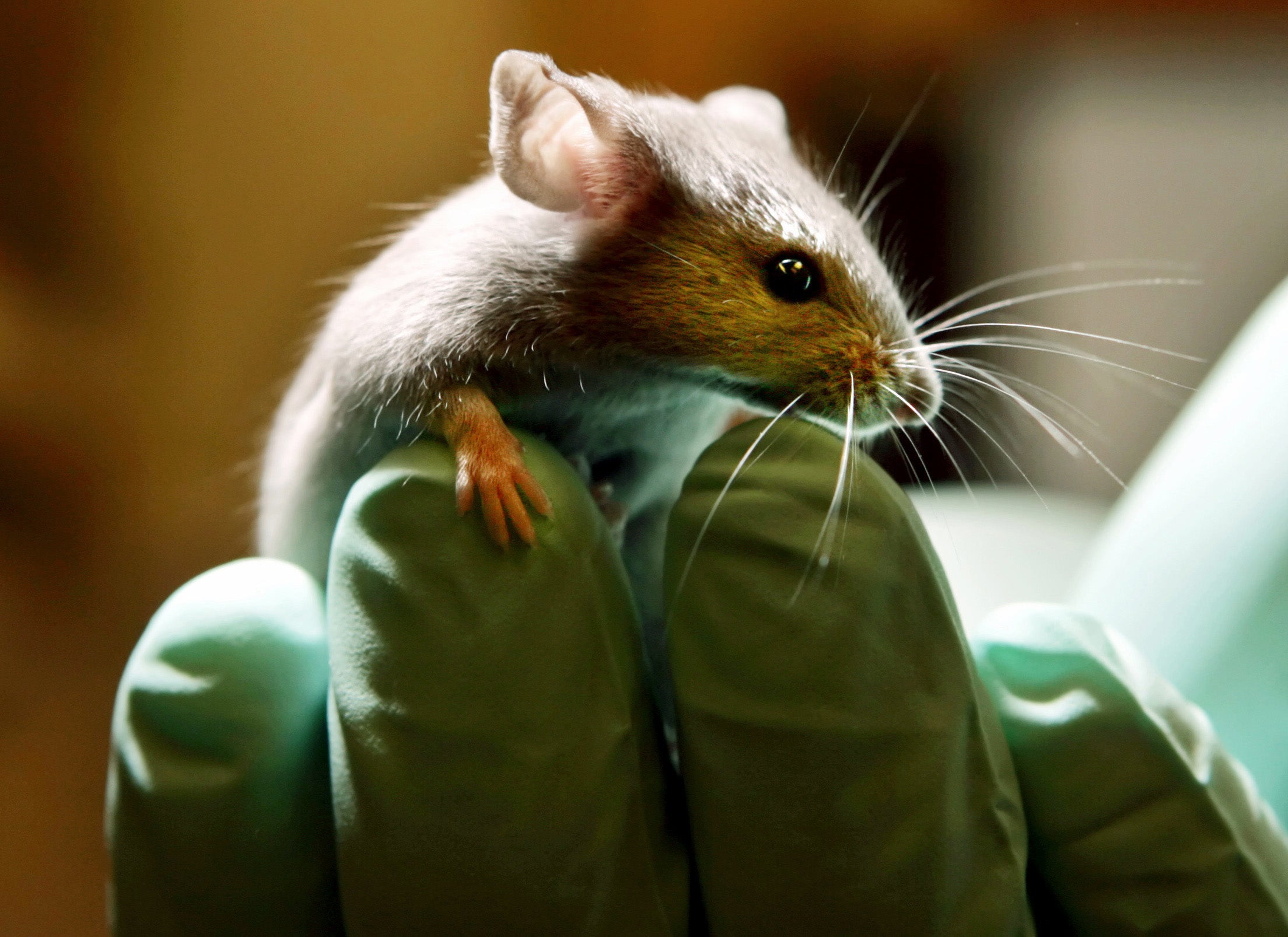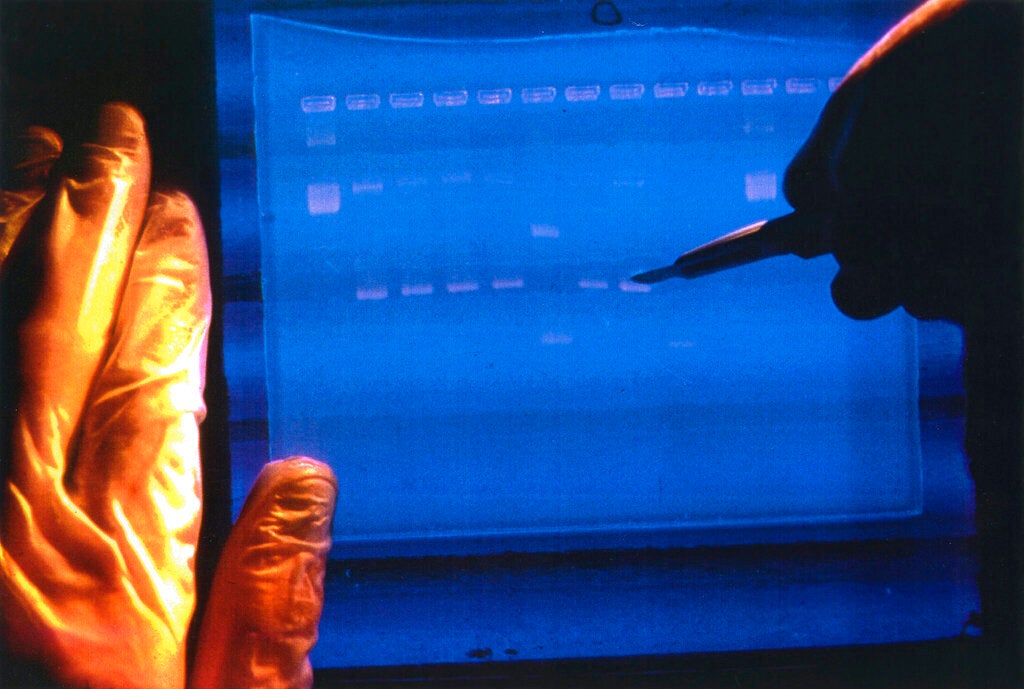A melanoma researcher at the University of Wisconsin Carbone Cancer Center is moving forward on a novel way to treat malignant melanoma.
In the clinical trial, the patients’ skin tumors were injected with a substance from rabbit blood cells called “a-gal glycolipids.”
The melanoma patients received two shots into their tumors of antibodies not found in humans. The substance tells the body’s immune system that it should attack the cancer cells and eliminate them.
Stay informed on the latest news
Sign up for WPR’s email newsletter.
Dr. Mark Albertini is a melanoma researcher who has worked on this new immunotherapy approach for four years. Kate Archer Kent/WPR
“It’s like putting a lamppost onto what you’re trying to target,” said Dr. Mark Albertini, an associate professor of medicine at the UW Carbone Cancer Center, and the study’s lead author.
A University of Massachusetts Medical School scientist developed the injections and tried them on mice with good outcomes, he said. Albertini gave low doses to nine of his patients.
“We saw very little adverse side effects and did have some evidence of biological activity that what we wanted to happen was in fact happening in patients with melanoma,” Albertini said.
Now, a synthetic version of the injection is under development, opening the door to a larger clinical study, which Albertini said is about a year away.
The study will be published in the August issue of the journal Cancer Immunology, Immunotherapy. The study, “Phase I study to evaluate toxicity and feasibility of intratumoral injection of α-gal glycolipids in patients with advanced melanoma,” is available online.
The American Cancer Society projects approximately 76,380 new melanoma cases and 10,130 deaths due to melanoma in the U.S. this year. The rates of melanoma have been rising for the past 30 years.
Wisconsin Public Radio, © Copyright 2024, Board of Regents of the University of Wisconsin System and Wisconsin Educational Communications Board.



